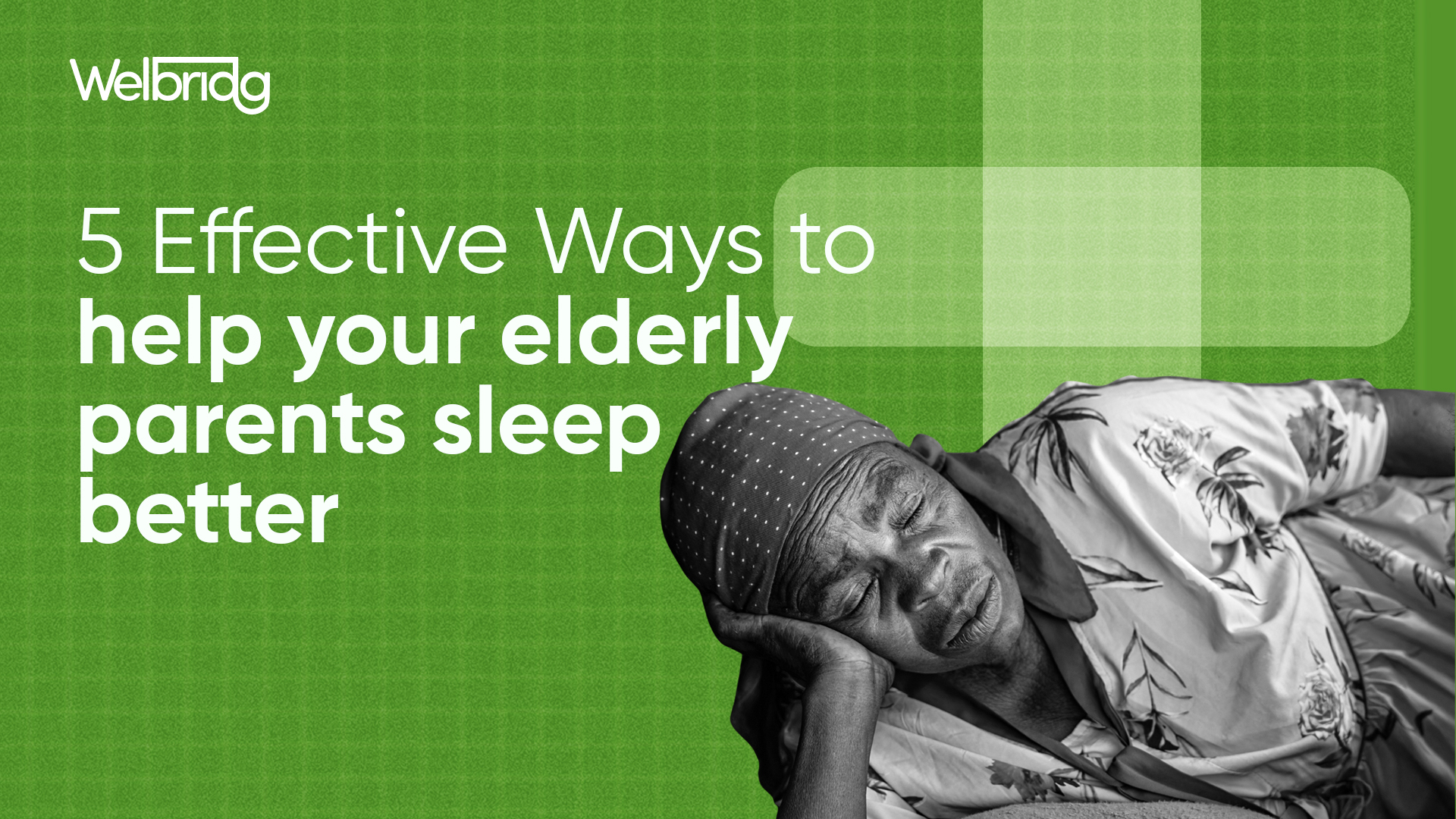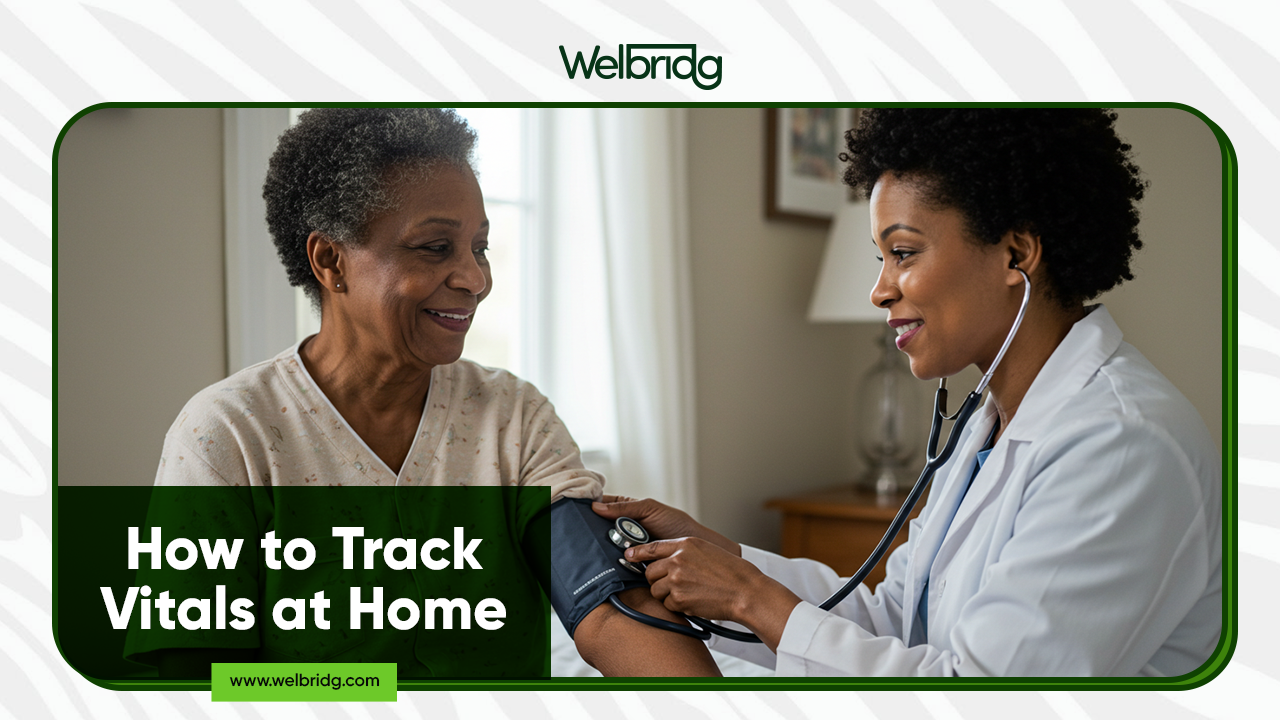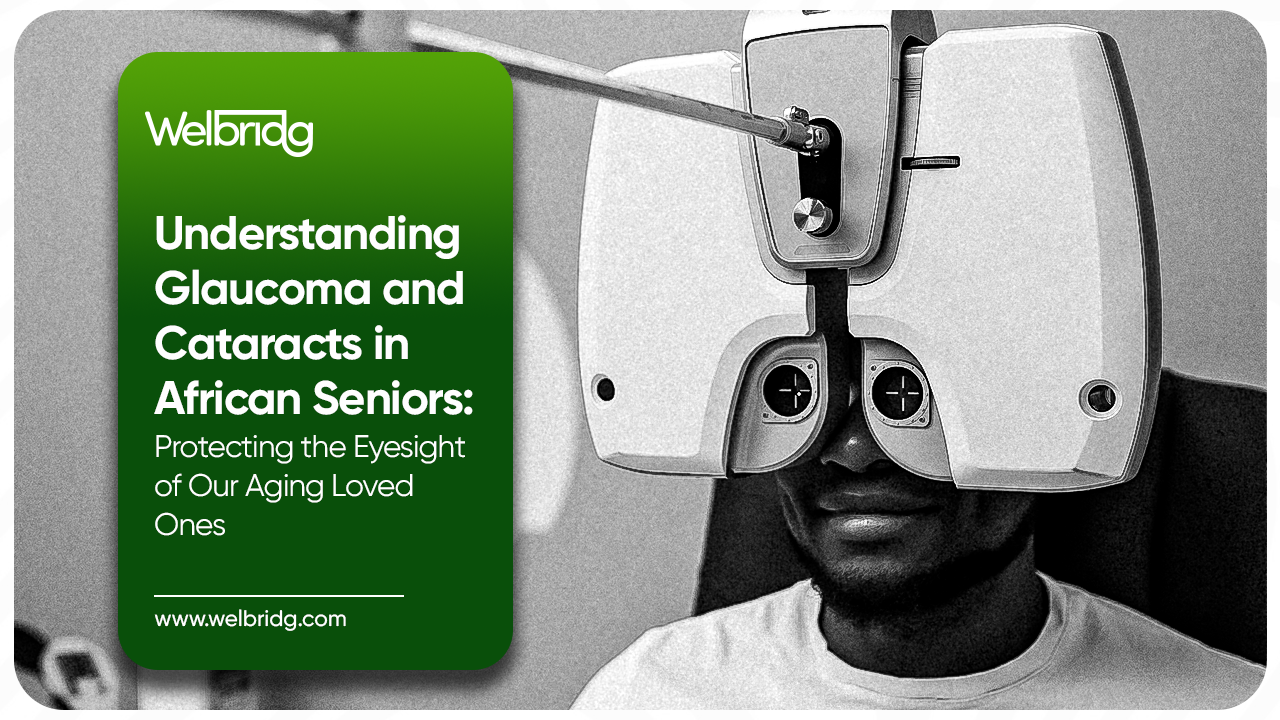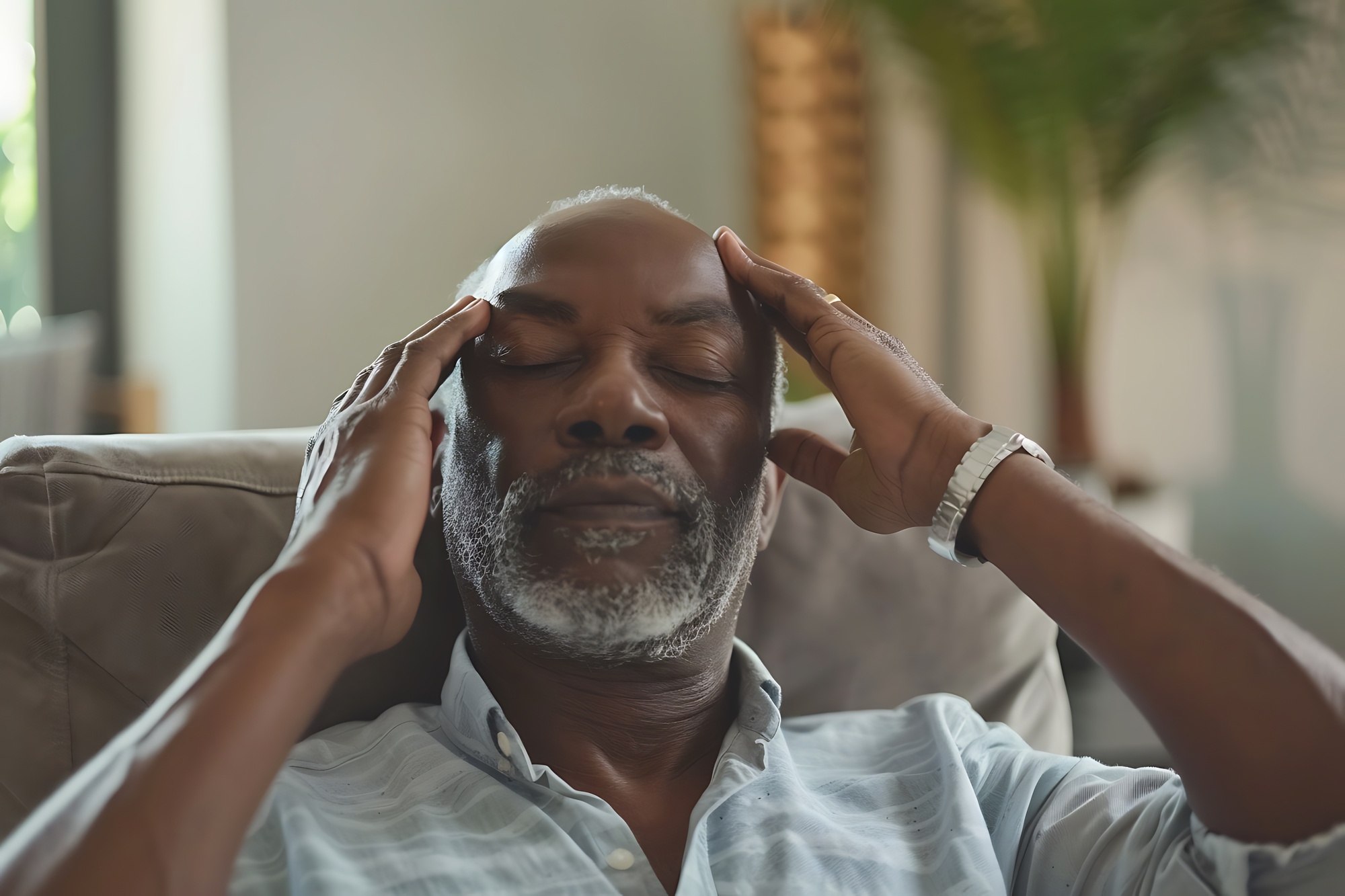What is Arthritis? Managing Joint Pain in the Elderly
Posted: 14th Oct, 2025 By: yinksey
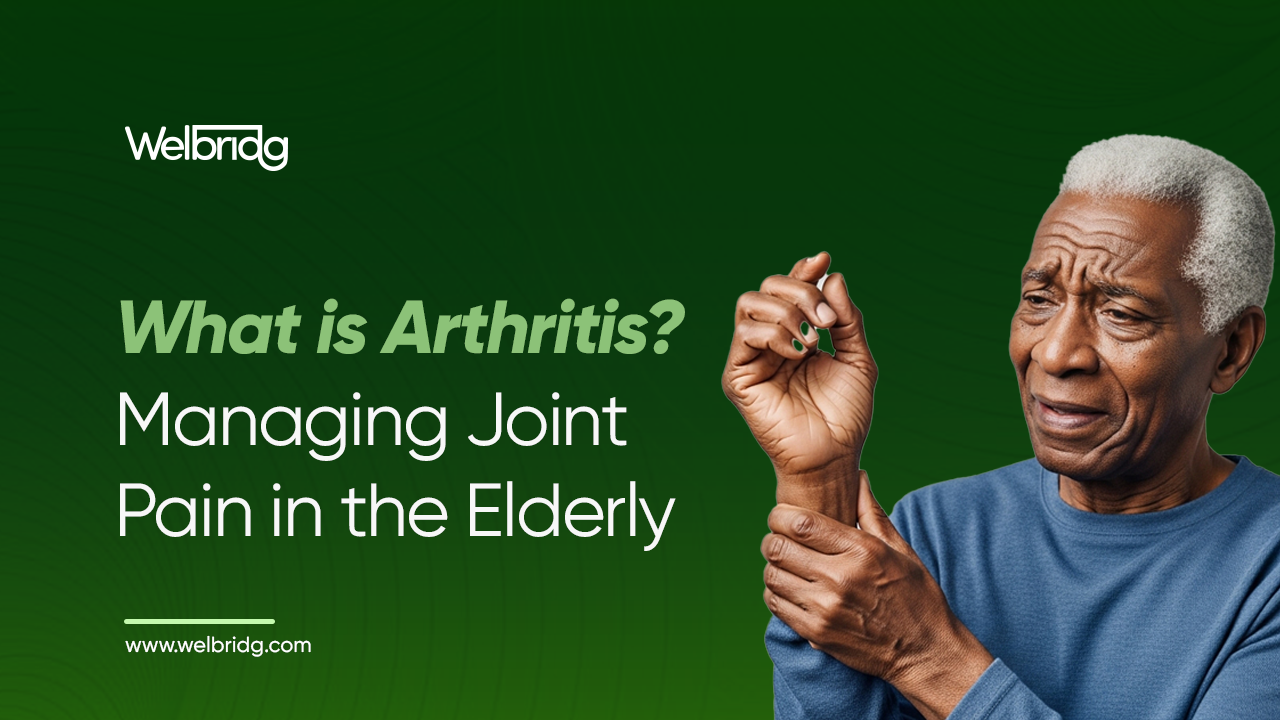
It starts with something small. Grandma bends to pick up her wrapper, and a sharp pain shoots through her knee. Grandpa tries to open a jar, but his fingers feel stiff and heavy. “It’s just old age,” many people will say casually.
But in reality, these are common signs of arthritis, a condition that affects millions of elderly people around the world including those in Nigeria.
Arthritis is not just “body pain.” It’s a health condition that can affect the mobility, independence, and quality of life of our parents and grandparents.
The good news? With the right knowledge, lifestyle changes, and medical support, arthritis can be managed, and joint pain doesn’t have to steal joy from everyday living.
What is Arthritis?
Arthritis simply means inflammation of the joints. Joints are the places where two bones meet; like the knees, hips, fingers, and shoulders. When those joints become inflamed, stiff, or painful, that’s arthritis at work.
There are more than 100 types of arthritis, but the two most common in the elderly are:
Osteoarthritis (OA):
This is known as the “wear and tear” arthritis. It happens when the protective cartilage that cushions the ends of the bones wears down over time. It commonly affects the knees, hips, spine, and hands.
This is an autoimmune disease (the body mistakenly attacks its own joints). It causes pain, swelling, and eventually joint damage if untreated.
Common Symptoms of Arthritis in the Elderly
Arthritis doesn’t come overnight. It creeps in slowly, and the signs can be easy to dismiss as “just aging.” Signs to look out for includes:
Persistent joint pain (especially after resting or waking up).
Stiffness in the morning or after sitting for long.
Swelling around joints.
Reduced flexibility: difficulty bending knees, climbing stairs, or gripping objects.
Cracking sounds in the joints.
Why Are the Elderly More Prone to Arthritis
Aging naturally increases the risk of arthritis because:
Cartilage wears down over time.
Bones become weaker (osteoporosis can worsen this).
Past injuries resurface with pain.
Lifestyle factors like lack of exercise, poor diet, or obesity strain the joints.
In Nigeria, cultural habits like heavy lifting, years of walking long distances, and lack of early healthcare access also contribute to higher arthritis risks in older adults.
Managing Arthritis: Practical Tips for Seniors & Families
Arthritis may not have a cure, but it can be managed. Here’s how:
1. Stay Active (But Gentle)
Low-impact exercises like walking, swimming, or simple stretches help keep joints flexible.
Encourage parents to try light chair exercises if standing for long is difficult.
Movement reduces stiffness: “rest too much and the joints will lock up.”
2. Maintain a Healthy Weight
Extra body weight puts stress on the knees and hips. Even losing a few kilos can relieve significant pressure on the joints.
3. Eat Joint-Friendly Foods
Include foods rich in omega-3 fatty acids (like fish, walnuts).
Add anti-inflammatory spices like ginger and turmeric
Leafy greens, beans, and calcium-rich foods support bone strength.
4. Heat & Cold Therapy
A warm towel, hot water bottle, or warm bath eases stiffness.
Cold packs help with swelling and sharp pain.
5. Use Support Aids if Needed
Walking sticks, supportive shoes, or knee braces can make daily life easier and reduce fall risks.
6. Medication & Professional Care
Over-the-counter pain relievers or doctor-prescribed drugs can help manage pain and inflammation.
Regular check-ups with a doctor are key. Don’t wait until pain becomes unbearable.
In severe cases, surgical options (like joint replacement) may be discussed.
7. Emotional & Social Support
Arthritis can be frustrating. Encourage elderly loved ones to stay socially active, attend community events, or join church/mosque groups. Laughter, conversation, and purpose go a long way in managing pain.
How Families Can Help
For children living with elderly parents or even abroad support goes beyond buying medication. Here’s what you can do:
Remind them to stay consistent with exercises.
Help prepare healthy meals that reduce inflammation.
Check in often and listen when they complain of pain.
Adjust home setups to make sure frequently used items are easy to reach.
Key Takeaway
Arthritis doesn’t have to mean the end of independence or joy in old age. With patience, lifestyle adjustments, and proper medical care, our elderly loved ones can continue to live active and fulfilling lives.
So the next time Daddy rubs his knees or Mama complains of stiff fingers, don’t just brush it off as “old age trouble.” Take it seriously. A little attention today can prevent a lot of pain tomorrow.
Make Elderly Care Easier with Oma
Managing arthritis and elderly health comes with many moving parts; medications, doctor visits, emergencies, and daily routines. That’s why we built Oma, the new Welbridg online medical assistant, designed to help families stay on top of their loved ones’ health.
Here’s what Oma can do for you:
Medication reminders to keep track of daily prescriptions.
Emergency contacts at your fingertips when time is critical.
Vetted elderly care services with help making bookings.
Nearby healthcare facilities so you always know where to go.
Health insurance guidance (currently with our partners AXA and Hygiae).
Oma is still in private beta testing, but you can start using it now. Give it a try, share it with your loved ones, and tell us how we can make it better for you.
Your feedback will help us expand Oma’s partner network and ensure it becomes the go-to healthcare companion for elderly care in Nigeria.
RELATED ARTICLES
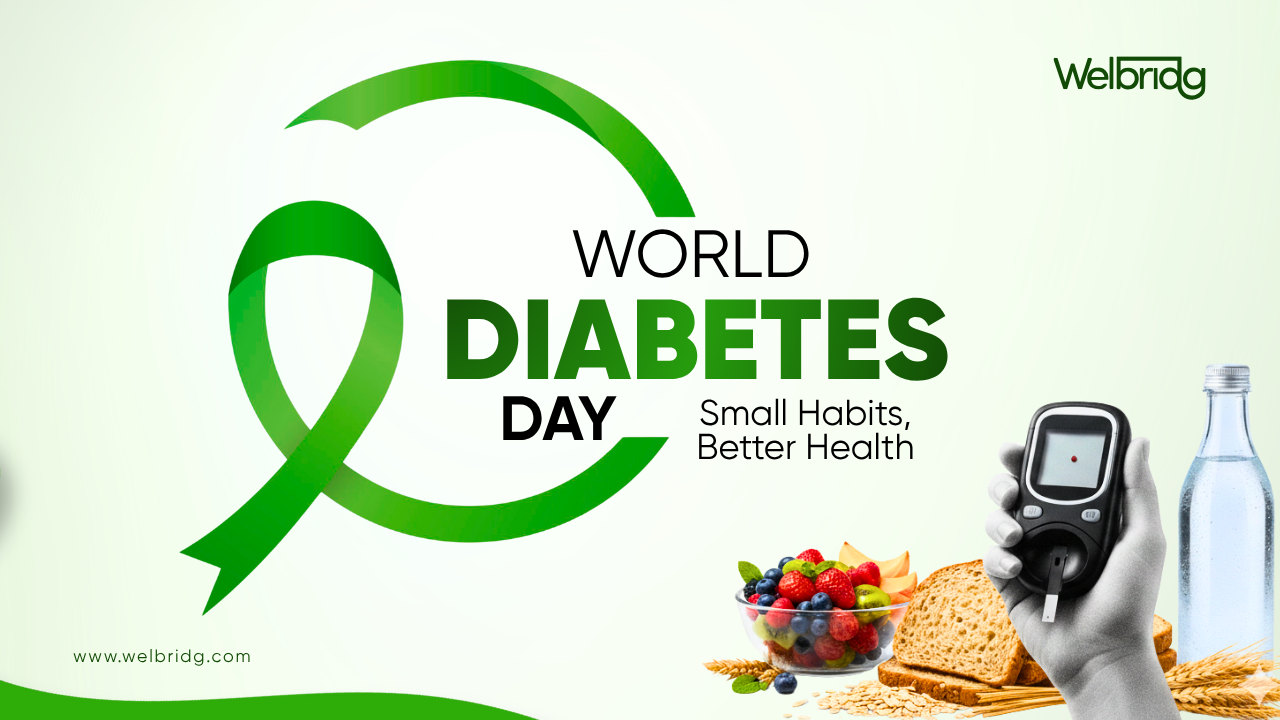
Managing Diabetes: Small Habits, Better Health
21st Nov, 2025
6 Most Important Exercises for People Over 60
29th Aug, 2025
How to Maintain a good health in old age
21st Jun, 2025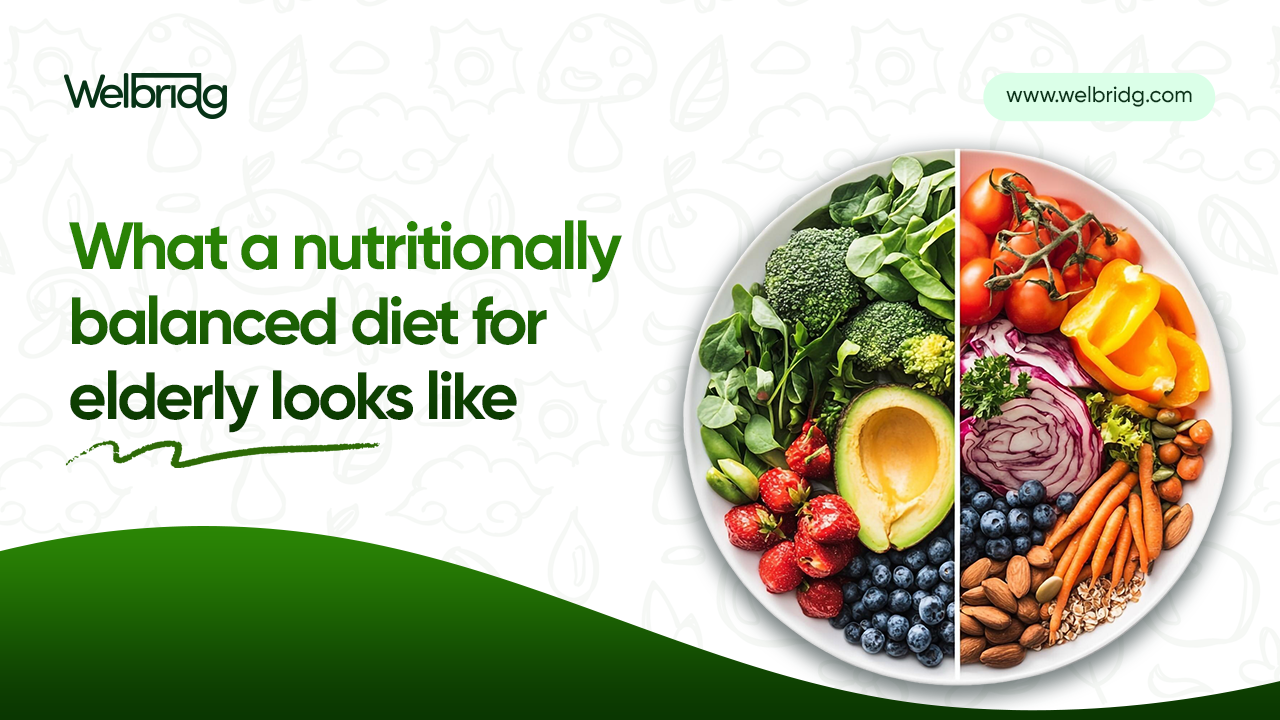
What a nutritionally balanced diet for elderly looks like
23rd May, 2025